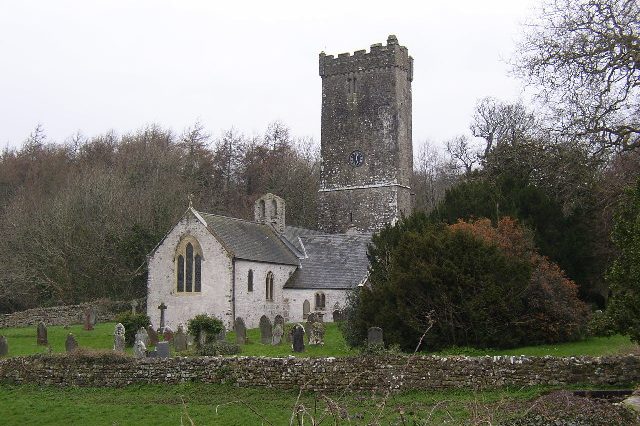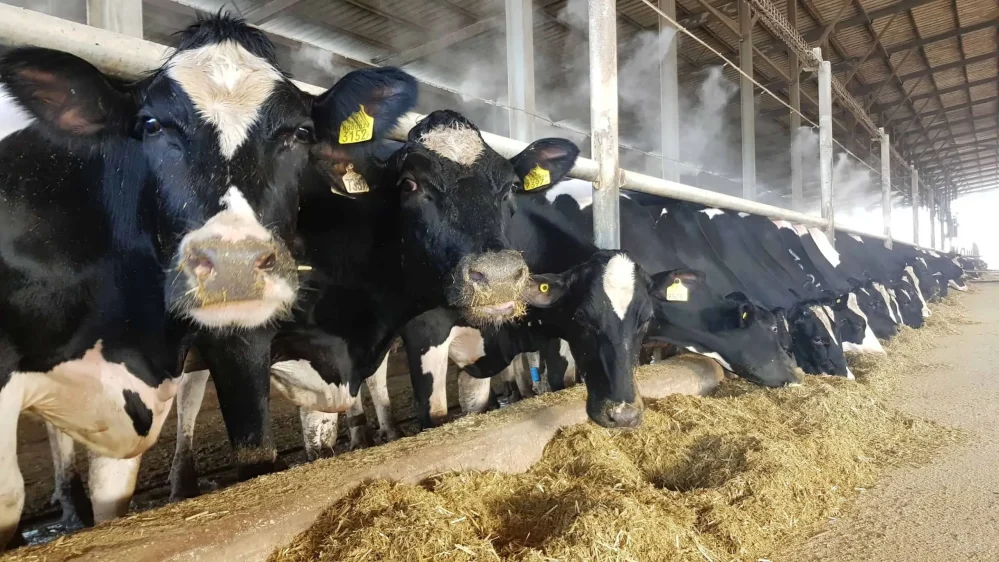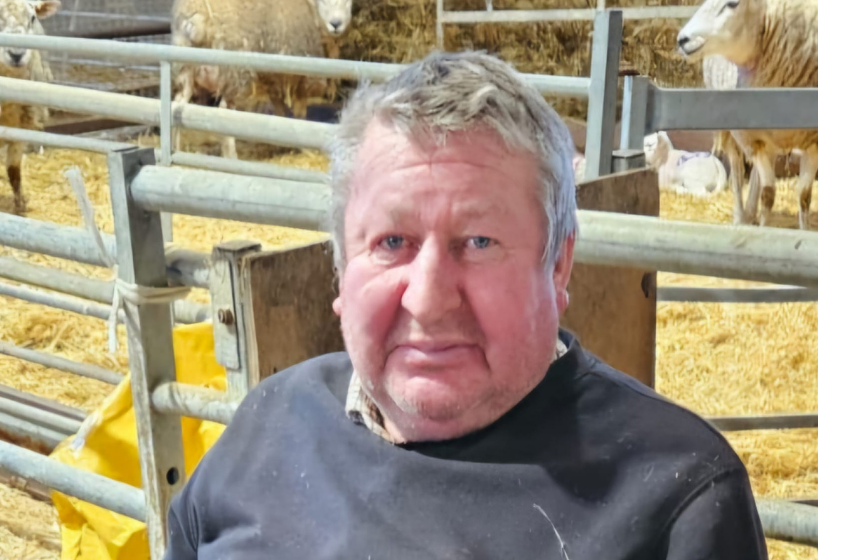Farming
NVZ rules driving family farms out of business

GLAMORGAN beef and sheep farmers Richard Walker and his partner Rachel Edwards run Flaxland Farm – a 120-acre beef and sheep holding just outside of Barry, Glamorgan. The couple say they will have to give up keeping cattle if current Water Resources (Control of Agricultural Pollution) (Wales) Regulations are not adjusted to incorporate recommendations made by industry stakeholder groups.
Richard and Rachel keep 35 breeding cows and 130 breeding ewes and are at the end of their tether.
“We’ve had a session with Farming Connect to see what we need to be doing, and it didn’t really tell us anything we didn’t already know, apart from that we have enough ground to cope with how much slurry we produce. So we wouldn’t have to export. But we would have to cover one of the existing yards, which is an awkward shape, plus cover where we scrape slurry to, and also put in a slurry store. Which we don’t have at the moment,” said Rachel Edwards.
“Judging on what the shed we had to put up recently has cost us, I don’t think we’ll have any change out of £50 thousand if we try to meet the requirements of the new regulations. 35 cows don’t bring in that sort of money. Where do you get that money from? And you still need to pay it back at the end if it’s borrowed. We’re looking at the kids probably still paying off what we’d spend. It would be far more stressful having to pay all that money back than getting rid of the cows.
“These regulations are going to have a huge impact on our farm business. If nothing is done to amend or annul what we are facing now, I’ll have no choice but to get rid of the cattle. Trying to comply with these regulations is just going to be too expensive for us,” said Richard Walker.
Cabinet Secretary for Energy, Planning and Rural Affairs Lesley Griffiths announced the plans in a written statement in November last year, after which it became apparent that the majority of the plans had simply ‘been cut-and-pasted’ from the Nitrate Vulnerable Zone (NVZ) rules currently affecting just 2.4% of Wales.
While the Welsh Government announced in January that £11.5 funding would be made available to help farmers comply with the new rules – an allocation it had already announced previously in September 2020 – this represents just 3% of the £360 million the Welsh Government’s own impact assessment estimates the costs could be for Welsh farmers.
“There’s clearly nowhere near enough money to go around, and the total estimated bill is more than Wales’ annual farming budget.
“The margins are tight on lowland sucklers as it is. We’re looking at spending tens of thousands of pounds to comply. Is it really worth it?” adds Richard.
At Flaxland farm the muck gets spread on around 30 acres of fields in September when the fields are clear and it is left for a couple of months to rot down and go into the ground before being used as grazing for the new season lambs.
“It saves us using artificial fertiliser. It’s organic fertilizer versus the artificial stuff which is £300 a tonne. We spread the slurry over winter, it helps the grass grow and we can turn the lambs and sheep out early. The spring lambs have fresh good grass and it hasn’t cost us a fortune in bagged fertiliser.
“I look at what it does to my ground – new season lambs have lush green grass, a couple of inches tall and they rocket on it. We can produce 12 week old lambs ready for slaughter on grass and milk with no concentrate. Without it, the grass wouldn’t be as beneficial to the new season lambs as it is now. There would be a shortage of grass around February and March. The way we do things here works in rhythm with all the livestock and the environment. We also deal with the carbon footprint of our produce by selling our lambs locally to I.G. Nicholas butchers in Cowbridge, which means they have very few miles to travel from farm to plate,” said Richard.
Being the third generation to farm the land, Richard says the farming system hasn’t changed much over the years and pollution here has never been an issue.
“I have had the cows all my life, my grandfather used to milk and they gave up milking in the 60s, and then we have had suckler cows ever since. The way we keep them hasn’t changed, back then it was open yards and they were fed on a concrete pad and whatever was left was scraped up and went out. It has never been an issue and we’ve never had a pollution incident here. The river near us has been tested many times and never comes back with any problems.
“I, like so many other farmers, take our responsibility to look after the environment, including our waters, very seriously. We have always been clear that one pollution incident is one too many and those who are guilty of polluting our rivers and watercourse should be held to account. Not many will argue with that. But to introduce these regulations across the whole of Wales, which goes against the recommendations the Welsh Government has received from their own task and finish group, beggars belief and will see many small and medium sized family farms go out of the cattle business,” he said.
Farming
Farm building scheme near Lawrenny given go-ahead by planners

AN APPLICATION for a storage building at a south Pembrokeshire farm, made by a family member of an officer on Pembrokeshire County Council’s planning service, has been given the go-ahead by the authority’s planning committee.
In an application recommended for approval at the July 23 meeting of the authority’s planning committee, Laura Elliot sought permission for the erection of an agricultural storage building at Tedion Farm, a dairy farm near Lawrenny.
The application had been brought to committee, rather than being delegated to planning officers, due to the family connection.
The farm, near to the Pembrokeshire coast National Park border, comprises 270 milking cows and dairy heifer replacements kept on the farm comprising land over 138 hectares. The farm is mainly down to grass and the cows are paddock grazed in order to utilise grass efficiency.
No objections had been received from local community council Martletwy.
A report for members said: “The application seeks consent for the erection of agricultural storage building. The erection of an agricultural building will be used to store stay, hay and farm machinery.
“The building would be located within the existing farm complex, to the north-east of the site, adjacent to the main farm dwelling. The building will measure 18 metres in length by 13.6 metres in width, with a pitched roof height of 5.71 metres.”
Approval was moved by Cllr Alistair Cameron, seconded by Cllr Brian Hall.
Farming
Fears dairy farm near Kilgetty could increase to 3,000 cattle

PEMBROKESHIRE planners are to visit the site of one of the county’s largest dairy farms after claims were raised a scheme for new calf buildings could lead to animal welfare issues and an increase in the size of the herd to 3,000 cattle.
At the July 23 meeting of the council’s planning committee, an application by Hugh James of Langdon Mill Farms Ltd for a calf building, weaned calf building, and associated yard areas, at Langdon Mill Farm, near Jeffreyston, Kilgetty was recommended for conditional approval.
Local community council Jeffreyston has raised concerns, made by a member of the public, on potential increased noise and odour from the scheme, planners heard.
A supporting statement, through agent Reading Agricultural Consultants, said: “The holding currently has a milking herd of approximately 2,000 cows, which are housed indoors for the majority of the year, with dry cows [cows that are not lactating, prior to calving] and heifers grazed outdoors when weather and soil conditions permit.
“There has been significant investment in buildings and infrastructure at the farm over the last decade in respect of cattle accommodation, slurry storage, milking facilities, Anaerobic Digestion (AD) plant and feed storage. The unit is efficient, achieving yields of more than 10,000 litres/cow/year, with cows being milked three times/day in the 60-point rotary parlour.”
Currently, calves are reared at Langdon Mill Farm for two months before being transported off-site to be reared at a number of third-party farms in the area before being return later; the proposed 61.2m long calf building is required to accommodate young-stock, following separation from the cows, to two-months, with the 164.8m weaned calf building to be used for calves from two months to seven months.
The application says the proposals would “clearly make the enterprise more financially robust by reducing reliance on third party farms”.
However, concerns were raised at the committee meeting by objector Ian Dennis, a former vet of some four decades’ experience, who described Langdon as occupying 3,000 acres of land with 2,000 cattle currently that “are never allowed to graze,” the proposal, he said, would add another 1,000 cattle to the site.
“This is factory farming, an intensive livestock unit, no longer a farm.”
He told planners a “mendacious and incorrect” ammonia emission report submitted by the applicants was “designed to bamboozle,” saying, despite his experience and scientific background, he needed expert support to assess.
He said only average figures were reported, rather than peaks and troughs, adding the “fictitious anaerobic digestion plant” had yet to be built, with planning permission now lapsed.
However, officers told members the applicant’s agent had said works on the digestor had actually started.
On the issue of animal welfare, Mr Dennis said he had “very huge concerns” about the scale of the development, differing from a planning officer report saying the scheme would bring animal welfare benefits.
A suggestion by committee chair Cllr Simon Hancock the application be deferred pending a site visit was unanimously backed by committee members present.
Farming
Family pay tribute to farmer, 65, who died in quadbike accident

A WEST WALES farmer has died after an incident involving a quadbike.
Dyfed-Powys Police have confirmed they attended a report of an incident involving an agricultural quadbike in a field in the Llanilar area of Aberystwyth on July 17.
The force has confirmed that a 65-year-old man died at the scene.
They said that his next of kin have been advised and are being supported by specialist officers. The HM Coroner and Health and Safety Executives have been informed.
His family have paid tribute to him. The family said: “Hugh Tudor was a 65 year old farmer who had farmed at Tynberllan, Llanilar with his wife Ann for over 40 years. He was a devoted father to Sara, Lowri and the late Gwenno.
“Hugh was the son of the late Tom and Sybil Tudor of Glanystwyth and brother to Richard.
“Farming was his life, but he also had a wide range of interests and was actively involved in all aspects of the local community in Llanilar and beyond.
“We would like to thank everybody for their support and kindness during this difficult time.”
-

 Education5 days ago
Education5 days agoMilford Tesco worker achieves Oxford dream and lands top legal job
-

 Crime4 days ago
Crime4 days agoHaverfordwest man admits having nearly 1000 child and animal images
-

 Crime4 days ago
Crime4 days agoYouth set to appear in court over serious sexual offences
-

 Crime4 days ago
Crime4 days agoPolice investigating after man injured during altercation in cemetery
-

 Education4 days ago
Education4 days agoPupils delight in ice cream treat from Pembrokeshire’s number one van
-

 Crime4 days ago
Crime4 days agoTown centre ‘stinking of skunk’ as police strip cannabis farm
-

 Crime3 days ago
Crime3 days agoFag-butt police court summonses spark debate in Pembrokeshire
-

 News6 days ago
News6 days agoProposal to give firefighters a council tax discount to go to Cabinet































